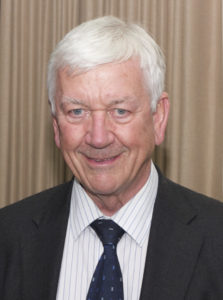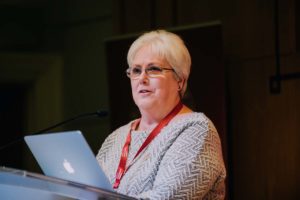GMC approves FPM’s new specialty training curriculum
Posted on: Thursday 20 May 2021
We are delighted to announce that the General Medical Council (GMC) has approved our new curriculum for the pharmaceutical medicine specialty training (PMST) programme.
We would like to thank the 50 volunteers who joined the various subgroups of our Curriculum and Assessment Working Group to develop the 14 specialty and generic capabilities in practice (CiPs) of the new curriculum; to review and update the workplace-based assessments; and to write the curriculum purpose statement and supporting guidance documents.
We anticipate implementing the new curriculum in August 2021 and we will publish the final version of the curriculum and supporting guidance documents soon.
“The development of Curriculum 2021 has enabled FPM to respond to the call across all of medicine for education and training to prepare doctors to meet the present and future needs and challenges of healthcare. This has been realised in our specialty through progression of competency-based training with the introduction of Capabilities in Practice (CiPs) for both specialty-specific capabilities, and for generic professional capabilities common to all doctors in all disciplines. CiPs are not an alternative to competencies but a means to translate competencies into practice, with assessment for competence being entrustability to complete work unsupervised. FPM’s curriculum and assessment working group, over three years, has had contributions from a host of practising pharmaceutical physicians across the pharmaceutical medicine field to reflect the real world of work and developing practice, and this is gratefully acknowledged in the preparation of Curriculum 2021.”

“Our specialty was formally recognised almost 20 years ago and our new curriculum reflects a growing maturity. The curriculum allows flexibility within a clear structure, recognising that although every pharmaceutical physician’s role is different, we share a set of common capabilities. And it provides an enhanced focus on professional practice, embedding the specialty’s commitment to the development of medicines for the benefit of patients.”

“I warmly welcome the new curriculum for the Pharmaceutical Medicine Specialty Training (PMST) programme announced today. Designed with input from FPM members working across the many sectors of pharmaceutical medical practice, the PMST programme is designed to enable completion within the workplace in a company of any type or size, medical regulatory bodies or academic institutions. The PMST programme also provides flexibility for completion at a rate compatible with ensuring work-life balance. I look forward to welcoming the first trainees and wish them well for their progress as we put this into action in the coming months.”

“I am delighted that the 2021 PMST curriculum has now been approved. It is the culmination of months of collaboration and consultation of FPM with its members and the GMC. I want to thank Professor Peter Stonier and Konrad Obiora, FPM Director of Specialty Training and Specialty Training Manger respectively, who led the process to revise the curriculum as well as thank you to those who contributed technical content. The lay representatives played a crucial role as they provided the patient perspective. The new curriculum will support the training of future pharmaceutical physicians and equip them with the generic and specialty capabilities for their future careers.”

This post was updated on Monday 2 August 2021 by changing the number of volunteers of the various subgroups of the Curriculum and Assessment Working Group from 56 to 50.
